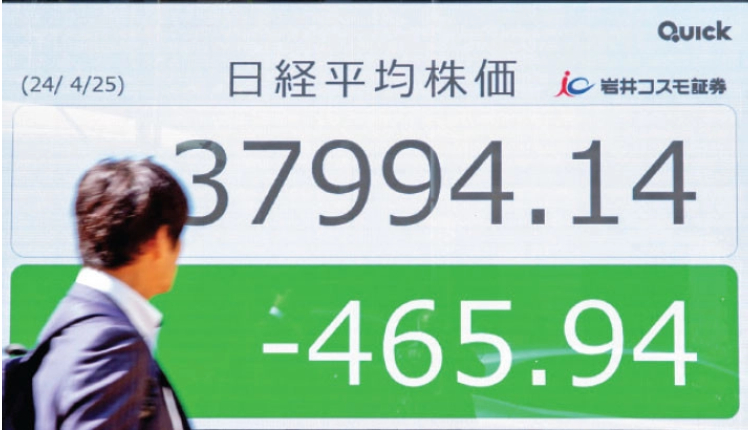Asian stocks climbed on Wednesday, and the Japanese yen fluctuated after the Bank of Japan (BOJ) unexpectedly tightened monetary policy.
The central bank raised its overnight call rate target to 0.25 per cent from zero to 0.1 per cent and outlined a plan to gradually reduce its bond purchases.
Japan’s Nikkei index edged down 0.19 per cent amid volatile trading, while the yen swung between gains and losses before settling flat at 152.81 per dollar.
The currency has rebounded significantly from 38-year lows reached in July, driven by factors such as potential official intervention and a reassessment of carry trade strategies.
MSCI’s broadest index of Asia-Pacific shares outside Japan surged 0.9 per cent, with Chinese stocks leading the gains. The blue-chip CSI300 index jumped around two per cent, and Hong Kong’s Hang Seng index also climbed two per cent.
However, data showed China’s manufacturing activity contracted for the third consecutive month in July, raising expectations for additional stimulus measures.
Nasdaq futures rebounded, up 0.7 per cent, as investors awaited the Federal Reserve’s interest rate decision later in the day. While a rate hike is not expected, markets are focused on the central bank’s outlook for future policy adjustments.
Oil prices increased from seven-week lows as geopolitical tensions escalated in the Middle East. The Palestinian militant group Hamas claimed that its leader, Ismail Haniyeh, was killed in Iran’s capital, Tehran.
US crude rose 1.65 per cent to $75.98 per barrel, and Brent crude climbed 1.49 per cent to $79.80 per barrel.
The Australian dollar slumped to a three-month low as softer-than-expected inflation data reduced expectations of further interest rate hikes. Despite the currency’s decline, Australian stocks rallied more than one per cent.
Attribution: Reuters


